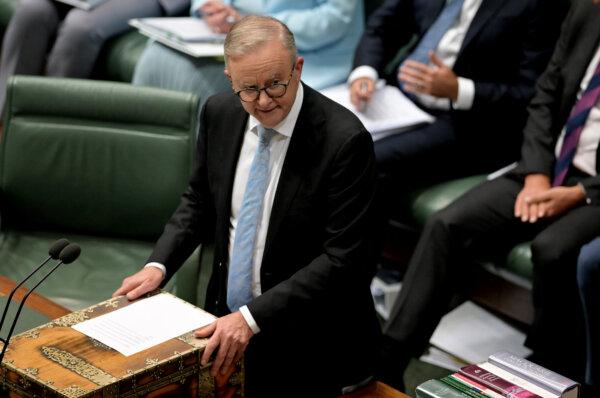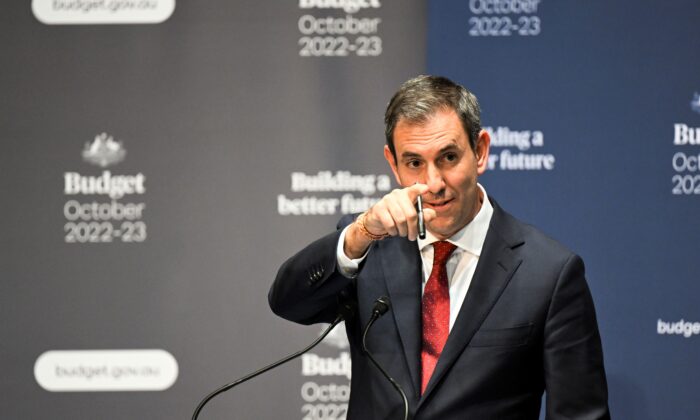An expert said the Greens’ call was unfair to the many Australians who did not go to university and whose taxes are paying for these degrees.
The Australian Greens Party has renewed its call for abolishing indexation on student debts following a new analysis but an expert said indexation was critical to ensure Australian taxpayers would not suffer losses from the student loan program.
According to parliamentary library projections released by the Greens on April 18, the amount of HECS (Higher Education Contribution Scheme) debt owned by around 3 million students across the country would rise by 4.2 to 4.8 percent on June 1 due to indexation.
The party said the forecasted increase would be the second highest in the past decade, following a 7.1 percent jump in June 2023.
The Greens also estimated that total student debts would surge by 16 percent or $12.3 billion (US$7.92 billion).
Greens Deputy Leader and education spokesperson Mehreen Faruqi said student debts were “spiralling out of control” as she called on the federal Labor government to abolish the indexation.
“Even the ‘best case’ scenario will see student debts increase by a whopping 4.2 percent this year alone, adding a thousand dollars to average debt, which already takes years to pay off,” she said.
“A worst case scenario would see a student debt increase of almost 5 percent in June, for an almost 17 percent debt increase in Labor’s first term of government.
“This alarming trajectory shows a clear failure of the current system and demands immediate action from the Labor government.”
At the same time, Ms. Faruqi reiterated the Greens’ messages that university and TAFE–vocational study–should be “free” for all Australian students.
“Financial costs should never be a barrier to education,” she said.
Prime Minister’s Response
Meanwhile, Prime Minister Anthony Albanese said the HECS was a good program as it resulted in a massive increase in the number of Australians getting a university degree.
However, he acknowledged that there were areas that the government could do better to address the issue of rising student debts.
“We’ve received a review of that (HECS),” he said.
“We’re examining the recommendations and we'll be making announcements pretty soon on that.”
At the same time, the prime minister hinted at some relief measures in the upcoming budget.
“We, of course, have a budget coming up. We have as well introduced fee-free TAFE that benefited over 300,000 people last year. So that’s making an enormous difference in the VET sector,” he said.
“We want to encourage more people to go to university and more people to get a TAFE qualification as well because that will be so important for the jobs that will be available in the future.”
 Australian Prime Minister Anthony Albanese speaks at Parliament House in Canberra, Australia, on March 18, 2024 . (Tracey Nearmy/Getty Images)
Australian Prime Minister Anthony Albanese speaks at Parliament House in Canberra, Australia, on March 18, 2024 . (Tracey Nearmy/Getty Images)Education Expert Says Abolishing Indexation Is A Horrible Policy
Glenn Fahey, the director of the education program at the Centre for Independent Studies, rejected the Greens’ call for abolishing the indexation, saying it was “Australia’s version of the horrible student debt relief policies advocated by the hard left in the United States.”
“It is a dud proposal and not in the national interest. Worryingly, it seems to be another sign that modern progressive populism is finding its way into Australia’s education politics,” he told The Epoch Times.
The director explained that it was necessary for student debts to be indexed to ensure Australian taxpayers would not suffer losses from the HECS program.
“It would be unfair to provide additional relief to recent graduates at the expense of older graduates or the many Australian taxpayers who did not go to university,” he said.
“For years, student repayment rates have been extremely low thanks to the extended period of low inflation.”
Mr. Fahey also stated that Australian university graduates generally did well under the current HECS program and a tight labour market.
“The bigger issue for graduates with HECS debts is likely to be the general cost of living and this would be better solved directly by policymakers– such as addressing escalating energy and housing costs,” he said.
To address the issue of students’ debt burden, Mr. Fahey suggested the government adopt a “marginal repayment rate system” where graduates make payments based on the amount of income that is above the HECS repayment threshold rather than a fixed repayment based on their total earnings under the current system.
The director also supported the idea of lowering the HECS repayment threshold ($51,550 in 2023-2024) to ensure that as many graduates as possible could make repayments each year and prevent the situation where students opted for lower-paid jobs to avoid paying back their debts.
“This is a better solution for taxpayers, the higher education system, and also for graduates themselves,” he said.
“In particular, it means that graduates who take a long time to earn an income above the HECS threshold don’t see their debts balloon over time.”














 English (US) ·
English (US) ·  Turkish (TR) ·
Turkish (TR) ·